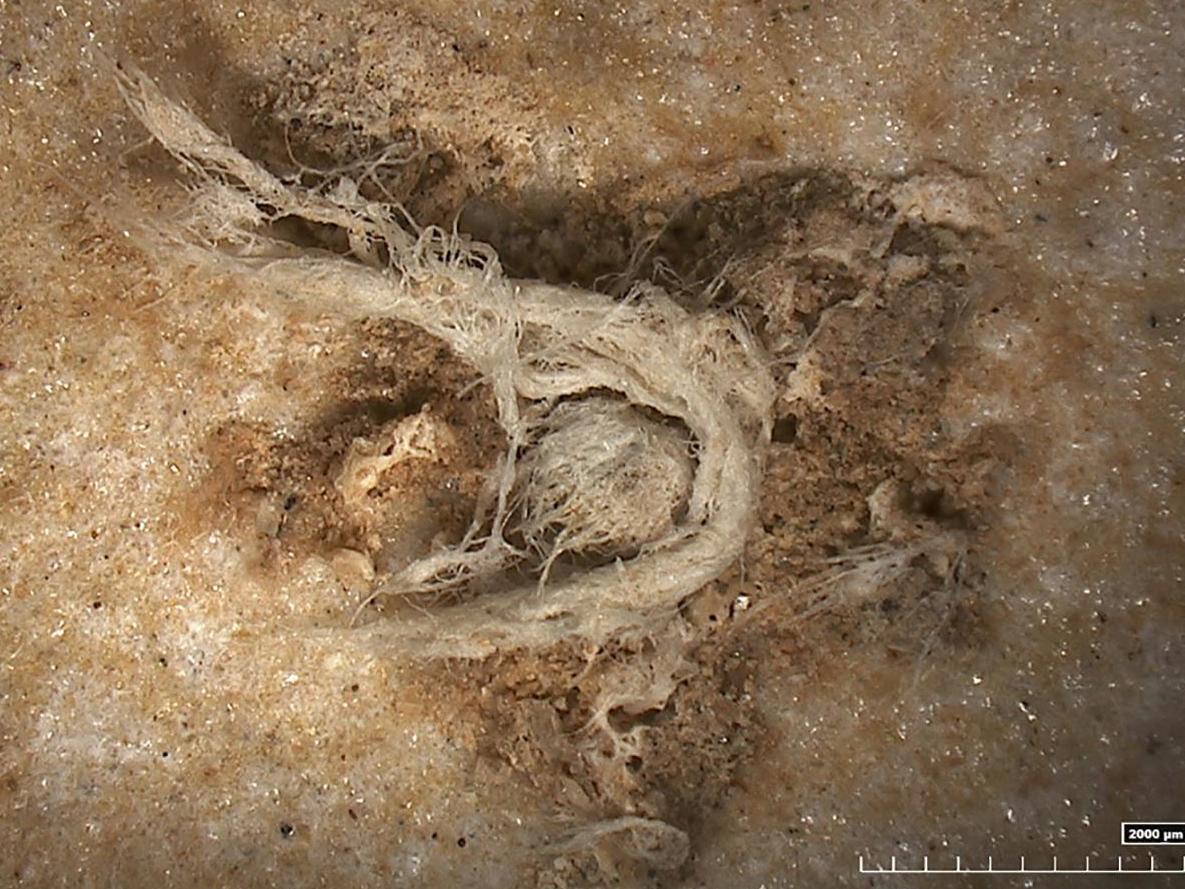50,000-year-old string ‘used by Neanderthals’ found in France
Scientists believe the fragments increase doubts the species was cognitively inferior to modern humans

A 50,000-year-old piece of string has been discovered in France, increasing doubts as to whether Neanderthals were cognitively inferior to modern humans.
The tiny, three-ply cord fragment measured six millimetres unearthed in Abri du Maras and is the oldest ever found.
Researchers from France, the United States and Spain came across the fibres attached to a thin stone that measures 60 milimetres.
It is thought the fragments could have served as a handle or have been part of a net or bag to carry the tool.
A Scientific Reports study details how spectroscopy and microscopy was used to likely determine the fragments probably came from the inner bark of a non-flowering tree such as a conifer.
Its discovery adds weight to claims the Neanderthals, whose species died out 40,000 years ago, could comprehend concepts such as pairs, sets and numbers.
This is due to the necessity to carefully count throughout multiple operations to successfully assemble the string.
The string could conceivably form the basis for clothes, bags, nets and even boats.
The string now offers further context surrounding the mental capacity of the species during the Middle Palaeolithic period from 30,000 to 300,000 years ago.
There is significant research to show the Neanderthals made birch bark tar, art and shell beads.
While there is further evidence to suggest they controlled fire, lived in shelters, deliberately buried their dead in graves and were proven hunters of large animals.
Previously, the oldest fragments discovered were around 19,000 years old and came from the Ohalo II site in Israel.
Lead author Bruce Hardy, of Kenyon College in Ohio, concluded that Neanderthals has a substantial ecological understanding of trees and possessed creativity to be able to utilise them for a variety of purposes.
The study declared: “Given the ongoing revelations of Neanderthal art and technology, it is difficult to see how we can regard Neanderthals as anything other than the cognitive equals of modern humans.”
Join our commenting forum
Join thought-provoking conversations, follow other Independent readers and see their replies
Comments
Bookmark popover
Removed from bookmarks